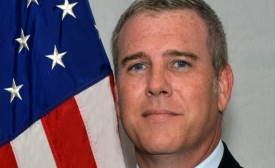trans-pacific partnership
Despite public diplomacy efforts by Pacific Alliance and ASEAN members alike emphasizing the desirability of upscaling their relations, actual progress will face challenges on several fronts. [...] Nonetheless, the current context offers the Pacific Alliance and ASEAN an outstanding opportunity to build up their partnership.
The Trump administration’s real ASEAN test is whether it can preserve the U.S. role as a capable and willing Pacific power seeking to advance greater security, prosperity, and democracy in the Asia-Pacific while working with Southeast Asian states on common challenges in a way that advances U.S. interests but still preserves their autonomy and freedom of action.
Japanese Prime Minister Shinzo Abe will propose new Cabinet-level US-Japan talks on trade, security and macroeconomic issues, including currencies, when he meets US President Donald Trump today, a Japanese government official involved in planning the summit said.
The American withdrawal from the Trans-Pacific Partnership trade agreement has opened the door to China to try and strike a pose as the leading defender of liberalized trade and globalization. The public face of this new push is none other than China’s president. This month, Xi became the first Chinese president to speak at the World Economic Forum in Davos where he set forth the case for continuing to expand global trade.
The leaders of Australia and Japan agreed today to boost cooperation between their militaries, as Japan tries to shore up security ties throughout the Asia-Pacific region amid concern over China’s growing military might.
China, as befits its status as a current major world power, should play a significant role, both behind the scenes and in front of them, in establishing a new order in Syria. Careful and thoughtful Chinese diplomacy, in conjunction with efforts by the other interested nations, can also create a foundation for a more peaceful Middle East and North African region in the medium- to long-term.
China will position itself as free trade's new champion at an Asia-Pacific summit this weekend, with the Communist government seeking to project economic leadership as a U.S.-led Pacific Rim trade pact languishes under President-elect Donald Trump.

Ambassador Wagar discussed the Trans-Pacific Partnership and its public diplomacy implications.







